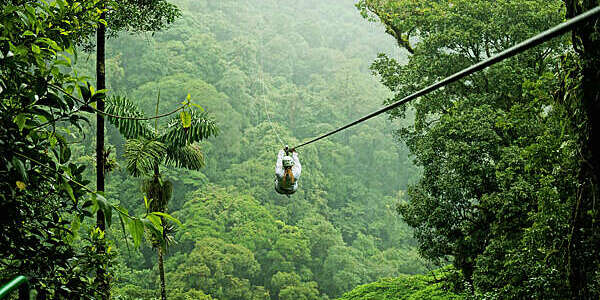Travelling light
ISO Travel Trends: standards for sustainable tourism.


In the pre-pandemic era, mass tourism was already putting a strain on our environment. Now, as the industry starts to recover, the challenge is to ensure that tourism in a post-pandemic world makes a comeback in a more sustainable way.

Tourism is one of the world’s major economic sectors, providing one in ten jobs globally. The industry also provides a valuable potential to drive virtually all of the United Nations’ 17 Sustainable Development Goals (SDGs), including SDG 15 (Life on Land), SDG 14 (Life under Water), SDG 12 (Responsible Consumption and Production) and SDG 1 (No Poverty), amongst many others.
In the first of our tourism series, let’s take a look at where ISO standards can help.
A sustainable tourism framework
Green tourism is nothing new, yet there are still a wide number of disparities and different approaches potentially inhibiting further progress in the most effective way. To this end, an International Standard for sustainable tourism principles is currently being developed.
ISO 23405, Tourism and related services – Sustainable tourism – Principles, terminology and model, will create a platform for the industry by providing agreed definitions and terminology on which sustainable tourism models can be based. Applicable to private and public organizations, regardless of their size and location, it will help them to identify, assess and mitigate any negative impacts they may cause to the environment, as well as the local culture, while maintaining a high quality of service and protecting their workers.

© Gerhard Joren/Getty
Nature-friendly digs
From camp sites to five-star hotels, tourist lodgings of every kind have an impact on the environment and society in which they operate that goes far beyond just the soil they are built on. ISO 21401, Tourism and related services – Sustainability management system for accommodation establishments – Requirements, can help to make that impact a positive one.
The standard specifies environmental, social and economic requirements for implementing a sustainability management system in tourist accommodation. It addresses issues such as human rights, health and safety for employees and guests, environmental protection, water and energy consumption, waste generation and the development of the local economy.

Life’s a beach
Keeping our beaches clean and eco-friendly not only makes visiting them a nicer experience, it’s also good for the whole planet. Polluting beaches affects the economy, biodiversity and one of our most precious resources: the sea.
But when hordes of sun-seeking beachgoers descend on the same strip of sand day in, day out, it can be a challenge for local authorities to manage. ISO 13009, Tourism and related services – Requirements and recommendations for beach operation, provides robust internationally agreed guidelines covering everything from beach and water safety, to cleaning, infrastructure, waste disposal, planning and promotion. It also helps to ensure that entertainment activities in the area are conducted within a socially responsible framework and provides guidance on safety and hygiene for visitors.

Green adventures
After the restraints of the past year, adventure tourism is tipped to take off even more as tourists make the most of their freedom and seek more challenging experiences. ISO 20611, Adventure tourism – Good practices for sustainability – Requirements and recommendations, gives adventure tourism providers all the guidance they need to ensure these adventures are good for the planet too. The standard goes beyond “just a bit of recycling”, taking a comprehensive approach that includes educating clients and taking action to proactively contribute to the conservation of the local environment.

Let’s go diving
Protecting life under water is the objective of SDG 14, whose mission is to “conserve and sustainably use the oceans, seas and marine resources for sustainable development”. The diving community, therefore, can play a positive role. To give it a helping hand, ISO has a number of International Standards for recreational diving, with two directly aimed at sustainable practices.
ISO 21416, Recreational diving services – Requirements and guidance on environmentally sustainable practices in recreational diving, for example, will help dive centres and services be kind to the aquatic environment. It features international best practice, such as deterring divers from feeding or removing aquatic life, or how to operate boats in an environmentally friendly manner.
The standard is joined by ISO 21417, Recreational diving services – Requirements for training on environmental awareness for recreational divers, which aims to educate divers on the environmental impact of their sport so that they are in a better position to reduce the risk of harming our waters.
All of these standards were developed by ISO’s technical committee for travel and tourism, ISO/TC 228, Tourism and related services, whose secretariat is held by UNE, ISO’s member for Spain. They can be purchased from your national ISO member or the ISO Store.